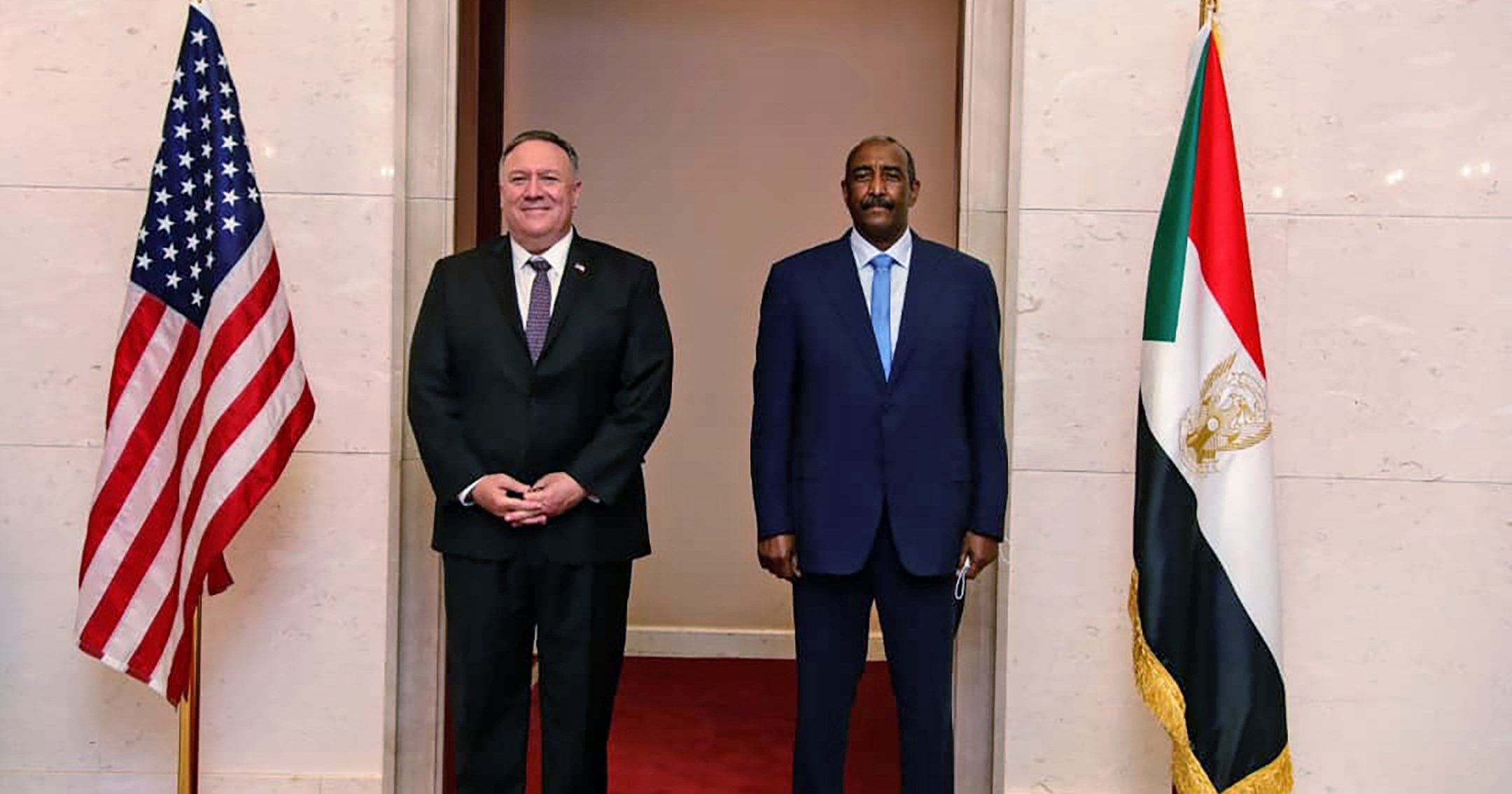
Another US-Brokered Peace Deal Between Israel, Arab Rival Coming Soon
Sudanese officials confirmed on Thursday that a senior U.S.-Israeli delegation flew to Sudan this week to wrap up a deal that would make Sudan the third Arab country to normalize ties with Israel this year.
Such a deal would deepen Sudan’s engagement with the West after President Donald Trump’s conditional agreement this week to remove the North African nation from the list of state sponsors of terrorism.
Trump’s national security adviser, Robert O’Brien, told the “Fox & Friends” program on Thursday morning that “there’s more to come” after the recent U.S.-brokered accords between Israel and the United Arab Emirates and Bahrain.
“I think we’re going to have some announcements soon on that front,” O’Brien said.
Two senior Sudanese officials confirmed the visit. One of them, a senior military figure, said the U.S.-Israeli delegation came to put final touches on a deal establishing ties with Israel.
The delegation included Ronen Peretz, the acting director-general of Israeli President Benjamin Netanyahu’s office, and Brig. Gen. Miguel Correa, the senior director for Gulf Affairs on the U.S. National Security Council, the official said.
They met with Gen. Abdel-Fattah Burhan, the head of Sudan’s transitional government, and a top adviser to Prime Minister Abdalla Hamdok, he said.
A second official said the emerging deal would include Israeli aid and investment, particularly in technology and agriculture.
The Americans and Israelis also promised to talk to allies to bring investment and debt relief to Sudan. The visit came during protests in Khartoum and elsewhere in Sudan over dire economic conditions.
The officials did not give a time frame but said an announcement could come at “any time” from Trump. They spoke on condition of anonymity pending a formal announcement.
In Washington, State Department spokeswoman Morgan Ortagus said Secretary of State Mike Pompeo spoke to Hamdok on Thursday.
“Secretary Pompeo applauded Prime Minister Hamdok’s [efforts to date] to improve Sudan’s relationship with Israel and expressed hope that they would continue, and underscored continuing U.S. support for Sudan’s ongoing democratic transition,” she said.
The deal would hinge on Sudan following through on its pledge to deliver $335 million to compensate American victims of past terror attacks and their families.
The money is meant for victims of the 1998 bombings of U.S. Embassies in Kenya and Tanzania by the al-Qaida network while its leader, Osama bin Laden, was living in Sudan.
Getting off the list is a key incentive for the Sudanese government to establish official ties with Israel. It would open the door for Sudan to get international loans and aid needed to revive its battered economy and rescue the country’s transition to democracy.
Sudan is on a fragile path to democracy after a popular uprising last year led the military to overthrow the longtime autocrat Omar al-Bashir.
A military-civilian government rules the country, with elections possible in late 2022.
Both Netanyahu’s office and the Israeli Foreign Ministry declined comment, as did the U.S. Embassy in Israel.
Trump is hoping for another foreign policy achievement following the U.S.-brokered diplomatic pacts between Israel and the UAE and Bahrain, known as the “Abraham Accords.”
While Sudan does not have the influence or wealth of the Gulf Arab countries, a deal with the African country would be deeply significant for Israel.
Sudan hosted a landmark Arab League conference after the 1967 Middle East war during which eight Arab countries approved the “three no’s”: no peace with Israel, no recognition of Israel and no negotiations.
In 1993, the U.S. designated Sudan a state sponsor of terrorism, in part for its support of anti-Israel Islamic militant groups, including Hamas and Hezbollah.
Under al-Bashir, Sudan was believed to have served as a pipeline for Iran to supply weapons to Palestinian militants in the Gaza Strip. Israel was believed to have been behind airstrikes in Sudan that destroyed a weapons convoy in 2009 and a weapons factory in 2012.
Netanyahu has made it a priority to forge ties with formerly hostile countries in Africa and the Arab world in the absence of any progress with the Palestinians.
He believes that outside pressure could force the Palestinians to abandon their demands for a state in all of the West Bank, Gaza Strip and east Jerusalem. The Palestinians have condemned the Arab outreach to Israel as a betrayal of their cause.
Netanyahu would welcome another diplomatic breakthrough at a time when his popularity has plunged at home due to his handling of the coronavirus pandemic.
Israel this week began emerging from its second nationwide lockdown, but many businesses remain closed and unemployment is close to 25 percent, according to government data.
The Western Journal has reviewed this Associated Press story and may have altered it prior to publication to ensure that it meets our editorial standards.
Truth and Accuracy
We are committed to truth and accuracy in all of our journalism. Read our editorial standards.
Advertise with The Western Journal and reach millions of highly engaged readers, while supporting our work. Advertise Today.












